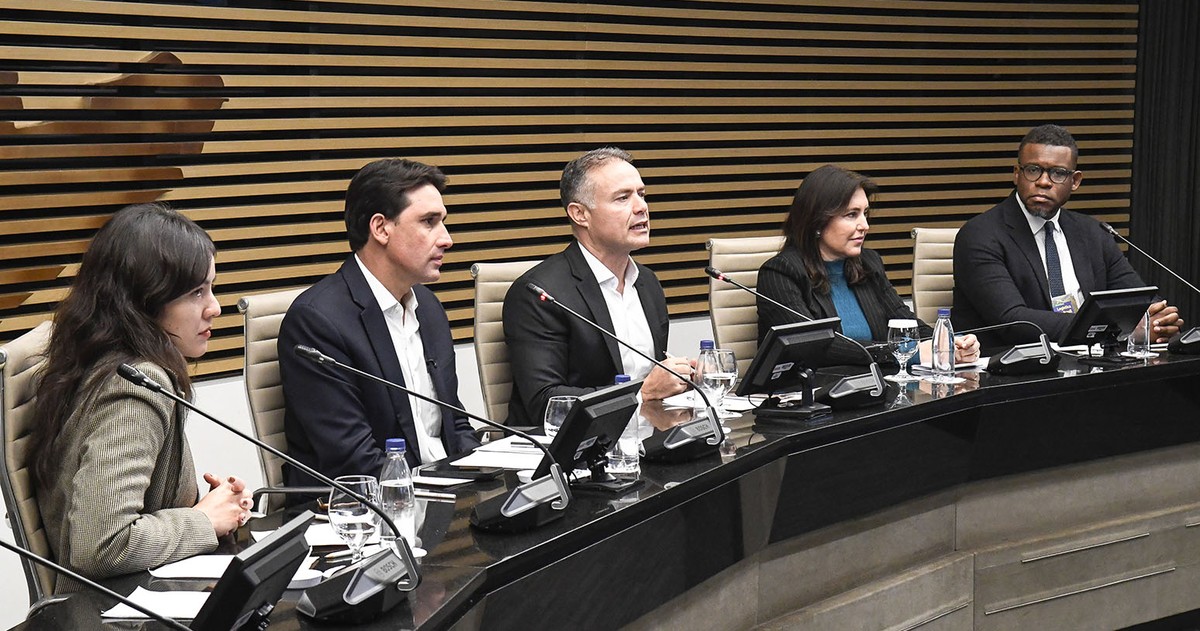Amid steep new tariffs imposed by U.S. President Donald Trump, ministers in the Lula administration are advocating for deeper ties between Brazil and regions such as Asia, South America, and Europe.
“BRICS is not the problem in this equation; for Brazil, BRICS is the solution,” Planning Minister Simone Tebet said during a panel at the Logistics in Brazil event organized by Valor, just hours before the U.S. announced the details of its 40% tariff hike.
Sponsored by Infra S.A. and the Ministry of Transport, the event was held at the headquarters of São Paulo’s Federation of Industries (FIESP). BRICS includes major emerging economies such as China, India, Russia, South Africa, and Indonesia, in addition to Brazil.
Ms. Tebet said this does not mean Brazil should disregard its relationship with the United States or the seriousness of the moment. But, she argued, the issue should be viewed through data. “Our agribusiness dependency on Asian countries is nearly 50%, and only 10% with the U.S.,” she said. “Yes, Brazil depends on the U.S., but it also depends on BRICS countries, on Europe, and on Mercosur. So we need to move forward with the Mercosur-European Union and Mercosur-EFTA [European Free Trade Association] agreements.”
She added that South American integration is key, since the most efficient way to reach Asia is via the Pacific. “Obviously, the world will no longer be the same,” Ms. Tebet said. “Our luck is that Trump wasn’t reelected, and in that gap many countries repositioned themselves.” Brazil, she noted, “did its homework with South American integration routes.”
Ms. Tebet argued this isn’t a “Sophie’s choice.” “It’s not a matter of choosing between the U.S. or BRICS. We need both, even if trade with the U.S. is far smaller than with BRICS,” she said. Still, she added, “some things are non-negotiable. This isn’t about putting BRICS on the table.”
She said Brazil cannot remain “subject to weather shifts.” “In this geopolitical scenario, we can’t pout or cry,” she noted. “But we do have a very positive agenda to offer the U.S.”
One example, she said, is rare earths, essential elements for high-tech manufacturing. “I speak only for myself, but we’re working not only on rare earths but also on minerals that aren’t technically rare earths but are strategic for the U.S. space and tech industries. We have the world’s second-largest reserve of rare minerals. We need international private investment and technology to ensure their sustainable extraction, once regulation is in place, while preserving the Amazon rainforest.”
Ms. Tebet also acknowledged the possibility of Brazil reducing import tariffs on U.S. ethanol, an indication that came from the White House. Brazilian ethanol exports to the U.S. were not included in the exemption list for Mr. Trump’s 40% tariff hike announced Wednesday (30). “That’s open to discussion, no doubt. But they also need to look at what they can do about corn ethanol subsidies,” she said.
Transport Minister Renan Filho also said the tariff hike is connected to the need to expand trade ties with countries in Asia, for example. “Opening new markets is critical. The more export outlets Brazil has, the more diversified its buyers, the more resilient it becomes,” he said. “Building a Pacific route obviously helps. Strengthening South American trade is also very important.”
Ports and Airports Minister Silvio Costa Filho said the government is working to grow Embraer’s international footprint, especially in Asia. “We want to strengthen Embraer’s institutional role and expand its global presence. There’s a 25% drop in sales. Reversing that is strategic for the country’s industrial and technological development,” he said.
Ministers noted that the U.S. appears to be prioritizing tariff negotiations with the world’s largest economies and key partners. “Growing our economy is essential to be in a better position, especially now that U.S. trade policy is shaping a new global order,” Mr. Renan Filho said.
Ms. Tebet called the recent U.S.-European Union deal “weak” and questioned whether the EU can follow through on its investment commitments “at the cost of some degree of military protection.” In any case, she said, recent agreements between the U.S. and the EU and Japan have clear economic content, “but we don’t see any of that” with Brazil, even though the U.S. has a trade surplus with the country.
She added that U.S.-Brazil negotiations are made more complex by “a certain mix of economic issues with political and ideological ones.” But she expressed confidence that once the current turbulence settles, direct talks between the two presidents will clarify many political issues.
Hours before Mr. Trump confirmed the additional 40% tariff—raising the total surcharge to 50%—and released an extensive list of exemptions, Ms. Tebet was already urging clarity. “We need to understand what is noise and what is substance, and figure out what the U.S. wants from Brazil and what it will do to avoid inflationary pressure on its own products,” she said.
At the time, she also said, “The Brazilian government does not believe there will be retaliation. We’re not talking about retaliation, only a reaction to defend democracy and national sovereignty.” Contingency measures, she added, will comply with fiscal responsibility, as most initiatives are “outside the fiscal sphere.”
